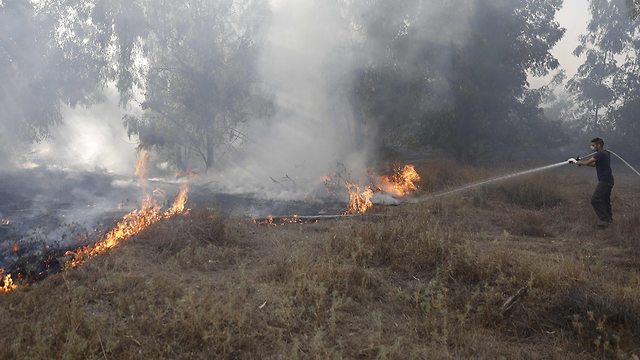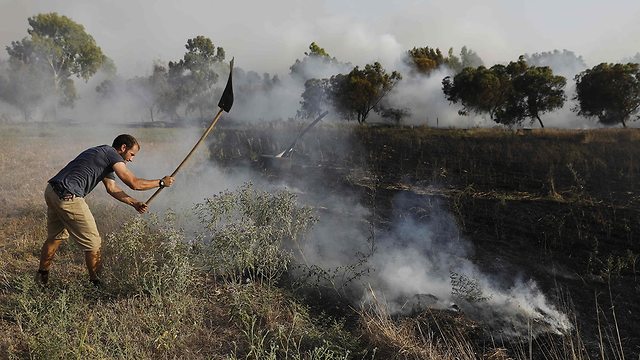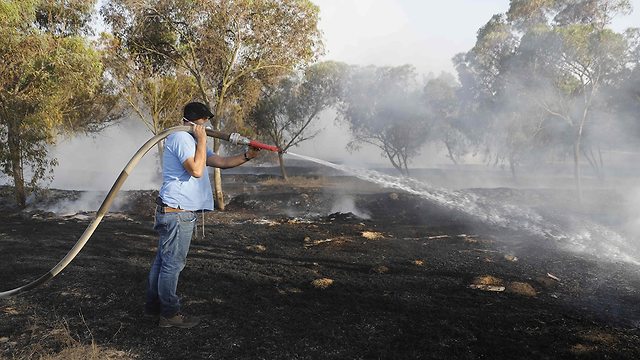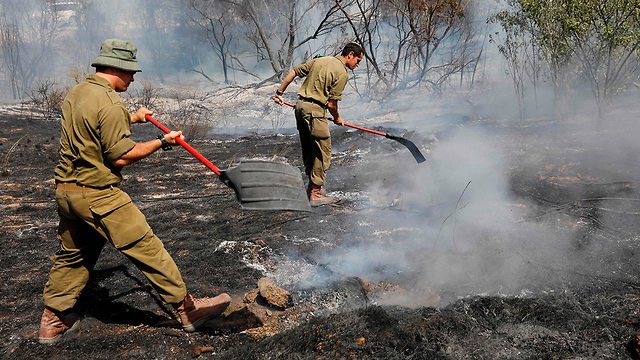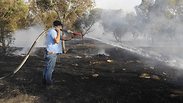

100 days of incendiary kites, balloons landing in south Israel
Southern residents decry government's lack of solutions to terrorizing phenomenon, which has scorched swathes of Israeli farmland; parents, who were children when rocket attacks began, lament that they now have to raise their children in such a hostile environment; 'There’s a feeling of desperation and exhaustion.’
When the first incendiary kite landed in a Gaza border community on March 30, few imagined that it would turn into a such a regular occurrence that would see dozens of fires break out on a daily basis and ravage swathes of Israeli landscape.
Every day the flames devour more and more locations, thousands of acres of forests, agricultural land and fields.
The local residents, who already live under a constant threat of rocket fire from the Hamas and Palestinian Islamic Jihad terror groups, now have to fear suspicious balloons in the sky or kites flying from across the border.
One senior security source said that what began as a gimmick during protests on the Gaza border, has grown into a serious threat that is making life increasingly difficult for local residents, and adds a new threat for which the people there need to prepare their kids. It might also lead to another escalation of violence in the south, several officials have warned.
The reality of rocket fire and Code Red alerts is part of everyday life for the residents of Gaza border communities. Those who were still children when rocket fire began in 2001, are now parents who have to teach their children not only about the danger of missiles but about incendiary balloons as well.
"In your development as a parent in the Gaza border region, you cannot hide the reality of the situation anymore,” said Michal Gal-Burgan, a mother of two, from the Eshkol Regional Council.
“Our children ask us questions ‘Why are they not nice to us?’. We tell them the truth and don’t sugarcoat and we tell them about the balloons and kites as well. We simply tell them not to touch. There is a feeling of desperation and exhaustion,” added Gal-Burgan.
She also discussed daily life in the region since the end of Operation Protective Edge in 2014.
“It’s been four years since Protective Edge, and until recently it was calm and we could live a normal life, but right now the situation is tense once again. It’s tiring. I had hoped that when I became a parent, my children wouldn’t have to deal with the same issues. I thought the government would find a solution so we could live in peace, but in reality, everyday we give up part of our peace of mind,” she concluded.
Local children also spoke about their experiences, exlpaining how they deal with the dangerous phenomenon.
"Counselors showed us a picture of a kite and a balloon," said 8-year-old Elia Gal who attends a children's home for at-risk kids. "The balloon in the picture had a sponge with matches attached to it. The counselors told us that if we find something similar then we should stay away from it and call for help."
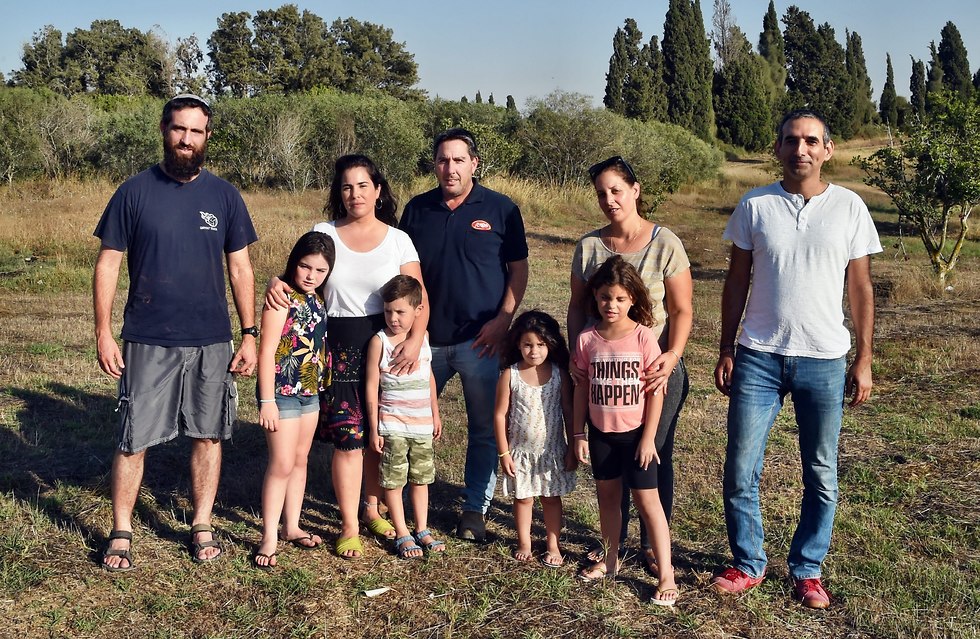
Aaron Ariel Lavie, a father of four and a resident of Shuva, a religious moshav in southern Israel where over the past months dozens of incendiary balloons have landed, says that he and his family are very strong. However, he calls on the government to urgently formulate a policy to resolve the issue.
“I am not of those who complains ... but unfortunately there’s no policy on what happens in the Gaza Strip. If there is no diplomatic solution, there’s no point entering another war. It’s hard to see our land being burned. I am a person that loves nature and it is painful to watch it get destroyed. It will only intensify. We shouldn't accept this threat,” vented the father.
Ofir Kalfa, a father of two, and a Sderot native who currently lives in Kibbutz Gevim in the Gaza border region, explained the difficulties he is experiencing in raising children in such an environment.
“Our children are heroes. The suffering they’ve experienced over the past few months has reached new heights. Our responsibility, as adults, is to fix the situation. The Netanyahu government is far from doing that,” Kalfa complained.
Another father of two, Avi Dabush from Sderot who serves as the Head of the Meretz party in the periphery, called on the country to invest more in the region.
“Seventeen years of war and 100 days of incendiary kites, and the Israeli government keeps putting out fires. The position of the leadership is to formulate a strategy and to promote prosperity in Sderot and Gaza border communities. This is what the brave residents and children here deserve,” exclaimed Dabush.














